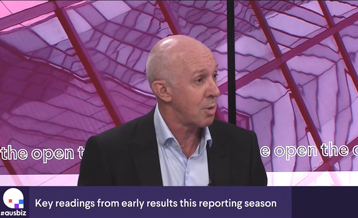News and Insights
Darren Thompson returns to Ausbiz TV discussing the latest market trends and insights.
Report
Equity returns over the past three years have been exceptionally strong, with the benchmark MSCI ACWI ETF delivering a 21.7% compound annual growth rate in USD terms during this period.
Report
Markets kicked off 2026 with momentum as equities climbed commodities surged and Australia’s economy held firm despite rate pressure. With earnings strength building and global growth set to outperform we’re leaning into diversification favouring global equities and ready to pounce on opportunities in Australian Fixed Interest above a 4.5% 10‑year yield.
EQT Holdings Limited (ASX: EQT) will conduct a webinar presentation by Mick O’Brien, Managing Director, and Johanna Platt, Chief Financial Officer, for investors following the release of EQT’s Half Year Results on Thursday 19 February 2026.
Equity Trustees has partnered with Blackwattle Investment Partners as Responsible Entity for the newly launched Blackwattle Equity Income Fund. This continues a partnership that has seen six funds brought to market since the investment manager commenced operations in 2023.
Report
Despite a range of risks investment markets have performed strongly over the last three years supported by resilient global economic growth, AI driven earnings growth and, more recently, interest rates cuts.
Report
Despite higher-than-average equity market valuations, strong earnings growth should provide for moderate gains.
Report
Global equities are forecast to deliver double digit earnings growth across both developed and emerging markets.
Report
The RBA held rates steady at 3.6% over the quarter but shifted more hawkishly as the quarter progressed post higher than expected inflation.
Report
2026 looks set for global economic growth to remain broadly resilient supporting equity markets earnings growth.
More than $1 million has been committed to support vital Australian research into Myalgic Encephalomyelitis / Chronic Fatigue Syndrome (ME/CFS), with three new research projects to commence in 2026.









